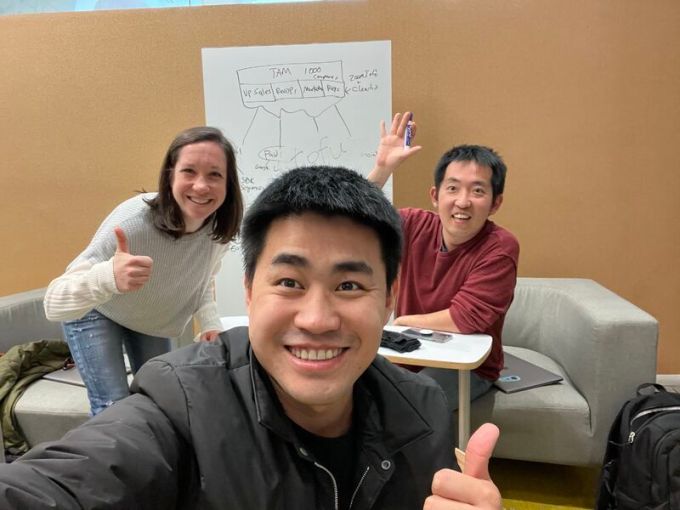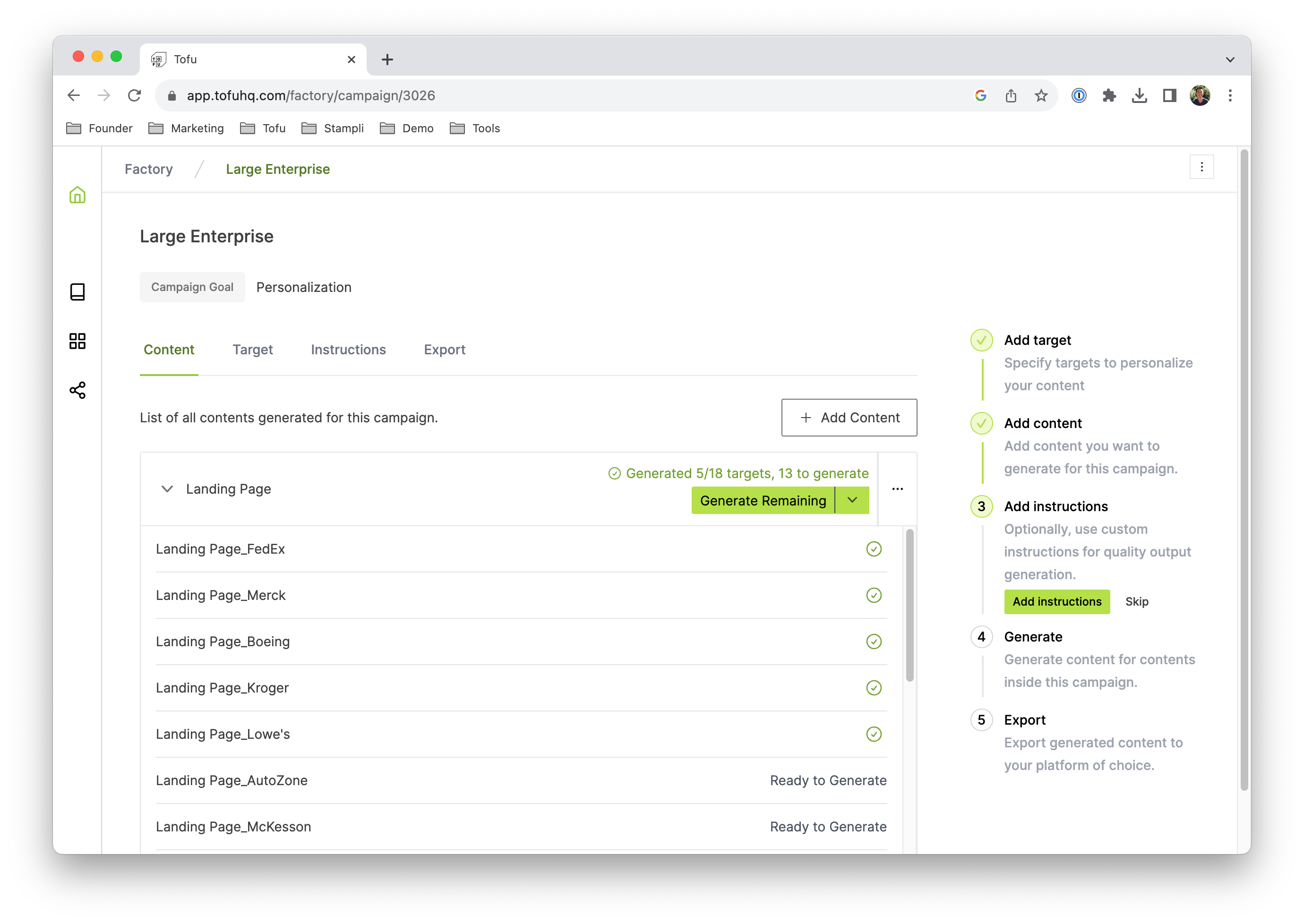Creating the many types of content needed for large-scale B2B campaigns often results in marketers juggling dozens of tools. This makes it difficult to ensure cohesive messaging across their emails, landing pages and other materials, say the founders of Tofu. The startup wants to solve that problem, especially for small marketing teams, with a generative AI-based platform that creates content for large-scale omnichannel B2B campaigns. The company announced today it has raised $5 million in seed funding led by Index Ventures, with participation from SignalFire, Stage 2 Capital and Liquid 2 Ventures.
Based in San Mateo, California, Tofu is currently in beta mode with enterprise customers and has more than 300 qualified leads in its pipeline. It was founded earlier this year by Eunjoon (EJ) Cho, Elaine Zelby and Honglei Liu. Before launching Tofu, Zelby built and led marketing teams at Slack, Consensys and Capriza, while Liu held leadership positions in machine learning at companies like Twitter, Affirm and Facebook. Cho has spent his entire career working with AI, starting with his first job out of graduate school at Google, where he trained language models.
AI has been used for a long time to optimize things like ads and personalized recommendations, but generative AI represents a shift because of how well it can generate content. Tofu’s team began thinking of use cases from a business perspective.
“Marketing is the most obvious one where they generate a lot of content to generate demand, to nurture campaigns,” Cho says. “There’s a lot of content in marketing in general. We believe that regardless of what Tofu does, how teams create content is going to change.”
In between jobs at Google and Facebook, Cho began working on a startup, where he got to experience the pain points of marketing. “As an entrepreneur, marketing is not easy. You have to find a way to sell and promote your services. But there’s so many marketing tools out there. I always had a big fascination with how to have a better ROI. There has to be a better way to optimize and utilize all these channels.”
Before launching, Tofu spoke to more than 100 enterprise CMOs. Many are in charge of teams that need to create thousands, or even tens of thousands, of pieces of content, including landing pages, emails, SDR sequences, e-books, case studies and brochures. They complained that even with all their tools (some use as many as 30), they don’t have the resources to hyper scale campaigns.

Cho says the fragmentation of tools, and of teams managing them, means messaging is also fragmented. For example, a company might send out an email with a link to a landing page that were created separately and sound different.
Tofu wants to solve that problem by replacing all the different tools teams use for content, and generating personalized content at scale while keeping it on message and serving as a unified platform for marketing teams.
Tofu got its name from “top of funnel” (ToFu), a marketing term that means the earliest part of conversion, when a lot of potential leads first become aware of a brand or product. The startup is called that because marketing teams use a lot of tools, the ones Tofu wants to replace, during the ToFu stage, to target specific content and channels.
One of the ways Tofu seeks to ensure its AI-generated content sounds natural and on brand is by first building a Playbook, or AI knowledge graph, for its clients. It does this by scraping customers’ websites and marketing materials. Then it uses that data to create three sections. The first is company information, including products and branding, like logos, fonts and colors. The second part is targets, or data from segmented customers like personas, industries and accounts that are further broken down by things like stages of pay-per-click (PPC) campaigns. This helps Tofu’s clients customize their content. The last part is assets, or a file group that can be repurposed. This can include past webinars, podcasts or user research studies that are collectively used as a “factory” to create content.

Once a Playbook is created and potential customers are identified, Tofu draws from it to create personalized campaigns. “If [a potential lead] clicks on a link, they go to precise landing page just for them. It could be really personalized at the account level,” Cho says. “But it can be different things. It can be at the persona level, so you have very personalized messaging for different personas and your target. It could be across industries. We’ve had campaigns run across 20 different industries.”
Cho says the goal of the Playbook is to make sure content generated by Tofu needs the least amount of human interaction, since the campaigns it generates are so large. “Imagine you’re creating literally 1,000 landing pages targeted for these accounts. We want to make sure by default that it’s good. So we put in a lot of effort to make sure the quality output is good, what we call ‘default good’ and ‘default ready to ship.’ But we always give the users the opportunity to check.” Tofu integrates with campaign execution tools like HubSpot and Marketo, so teams can run campaigns created by Tofu on the platform of their choice.
A Boston Consulting Group study shows that 67% of CMOs surveyed have already started using generative AI, and the convergence of marketing and AI is a space that more startups are engaging in. Marketing teams can also build features that enable content creation for campaign execution tools like HubSpot. Cho says that Tofu’s differentiator from competitors are its core features like the Playbook. “There’s already a lot of data that marketers have, everything from their positioning, their messaging, their competitive advantage, their segmentation. You don’t have to enter all that. You just need to upload existing data and AI parses that really well.”
He added that Tofu’s other strengths include positioning, since it has focused on enterprises from the beginning. “There’s a lot of companies that are going to help solopreneurs or small to medium businesses, but we want to build workflow integrations like secure access controls and build it so software marketing teams can really use Tofu as their resource for all their marketing content and use it on a regular basis.”































Comment